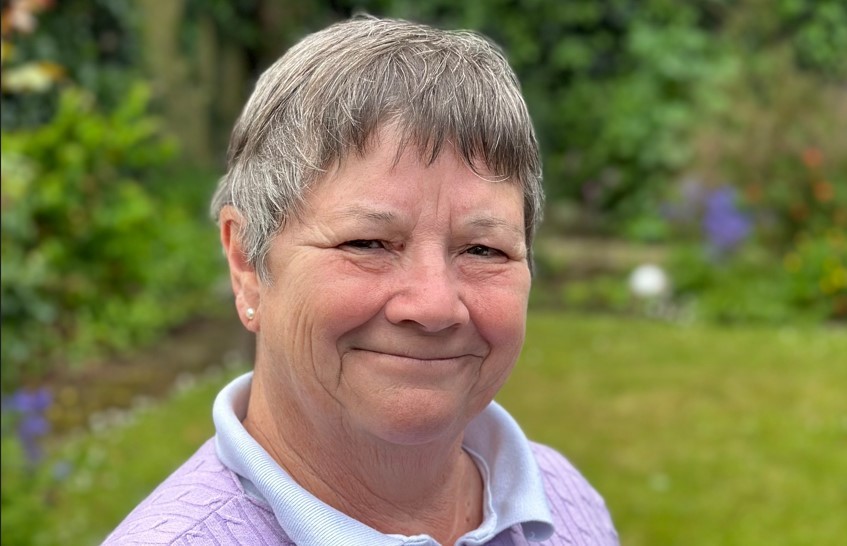
A copy of the Good Friday Agreement at the Linen Hall library in Belfast. Picture by Jonathan Porter, Press Eye, courtesy the Linen Hall library
WHEN Northern Ireland went to the polls 25 years ago to vote in the landmark Good Friday Agreement referendum, campaigners waited in trepidation.
Voting turn-out on May 22 1998 was very high - at 81%, with a series of opinion polls showing support for the agreement ranging from as high as 84% to as low as 66%.
Unionist and loyalist communities were particularly divided over the agreement, with the DUP backing a No vote.
Loyalist community worker Mark Vinton, who campaigned for a Yes vote, said the six weeks between the signing of the agreement on April 10 and the referendum vote were marked by fractious debates.
He said many meetings were disrupted by people, including DUP members, who wanted to reject the agreement.
“(I saw) people shouting and near coming to blows at times: ‘Youse are traitors, you're selling out the union’,” he said.
“Some people saw you as a sell out, and probably still do to this day.”
A huge public campaign led the push for a Yes vote - backed by the Ulster Unionists and the main nationalist parties.
Mr Vinton, who campaigned with the UVF-linked Progressive Unionist Party, was one of many who took part in smaller campaigns in their own communities.
As a father of two young daughters at the time - a newborn and a three-year-old, he wanted to see an end to violence.
“So I based it (his decision to back a Yes vote) on a personal theme, ‘Did I want my kids to grow up with the sort of stuff I grew up with?’,” he said.
He remembered an exhausting round of meetings and road shows.
“We were going around different parts of the country – Portadown, east Belfast, Cookstown, Londonderry,” he said.
“Holding meetings in Orange Halls or community centres, and trying to get people to buy into the concept.
“It was constant. I remember having arguments in my own household, with my own friends.”
According to a Queen’s University Belfast survey from the time, more than 40% of Protestants said they only decided how to vote in the last week of the referendum campaign.
Mr Vinton, from north Belfast, said many of the debates were hugely fraught.
“When you talk about the constitutional question and everything else, common sense sometimes goes out the window,” he said.
“A lot of lives were lost, a lot of friends were lost. Some people weren't ready.”
Around 71% of voters opted for a Yes vote. But voters were split along religious lines. According to research, Catholics overwhelmingly voted in favour of the agreement, while only around 57% of Protestants did the same.
Seán Oliver, a republican community worker in north Belfast who pushed for the Yes vote, said “everyone was talking about it”.
“Walk up the street or make the mistake of going for a pint - you'd be getting asked things, or getting people’s opinions,” he said.
Major issues, including the future of policing, the release of paramilitary prisoners, and paramilitary decommissioning were debated across Northern Ireland.
The discussions were hugely important, Mr Oliver said, because only one in four people were estimated to have read the full Agreement text by the time of the vote.
“You were having, in some instances, quite passionate debates,” he said.
“There were people who felt very strongly about bits or all of it. It was seen as a big step, a big compromise.
“At the time even the thought of putting on a suit and walking in and sitting in Stormont, seemed very alien. For the older people (from the nationalist community), they remembered Stormont just meant discrimination.”
Mr Oliver said those who had family members who died in the Troubles were hugely influential.
“I do remember at one of the big meetings, people standing up and saying ‘Our family has suffered, and if I can work with them, you can work with them’,” he said.
Avila Kilmurray, a founder member of the Northern Ireland Women’s Coalition, said a majority Yes vote was “by no means a done deal in the earlier weeks of the campaign”.
The Women’s Coalition, which included members from across different communities and classes, hired an open-top bus to drive around constituencies as part of the yes campaign.
“We also made a big thing about leafleting outside for the parents waiting for kids at primary schools,” she said.
During her canvassing in south Belfast, Ms Kilmurray noted “very different reactions from people that would have been seen to be coming from a nationalist background and from a unionist background”.
“We picked out bits of the agreement that we thought would be of interest to people,” she said.
“We were able to say from the Women’s Coalition - ‘We got victims mentioned in the agreement, for the first time’.
“So I think that was really important that we were able to draw attention to that.”
Ms Kilmurray said she emphasised on the doors that the agreement was supposed to bring greater prosperity.
“We were also able to say - it didn't work out because it was never implemented - that there was a big socio-economic basis in the agreement, particularly in more disadvantaged areas,” she said.
The party reached out to migrant communities, including people of Chinese heritage, and held conferences and meetings with community and ex-prisoner groups.
They also brought Roelf Meyer - the South African apartheid government's chief negotiator - to Portadown, Co Armagh, to meet people in the UDA.
“Sort of to say, look, we're not the only ones that have had a shift to get change, you know?” she said.
Putting the agreement to a popular vote “took a bit of pressure off the main players”, she said.
“It's not like (Irish revolutionary leader) Michael Collins coming back with the (Anglo-Irish) treaty under his arm. It is the people that will decide this,” she said.
On the same day as Northern Ireland went to the polls, people in the Republic voted in a referendum to remove the state’s territorial claim on the north from the Irish constitution.
However, Mr Oliver said the Republic’s referendum “barely registered” on the doors in Belfast.
“We were actually surprised. You had your lines and your arguments prepared, (but) people just looked blankly at me,” he said.
“I think it was almost a bit of cynicism. People said, ‘Well, these have been in place for 50 years. It hasn't exactly provoked much activity from Dublin’.”
Mr Vinton said although he was proud to have taken part in such important campaigning work, he felt the key role played by loyalists has been ignored.
“On the side of unionism, loyalism did all the heavy lifting,” he said.
“They carried it over the line. If loyalism hadn't bought into it, the UUP would never have sold it.”
He said he has mixed feelings about the agreement.
“One part of it worked, the part that saved lives,” he said.
“But the other part of securing the union (hasn't worked). It wasn't the settlement we thought it was. So I feel we called it wrong at the time.”
He added: “The peace dividend to me is that my kids and grandson don't have to witness the stuff I witnessed as a young child.
“So if I had to do it all again, would I do the same thing? Yeah, yeah I would.”
 By
By



